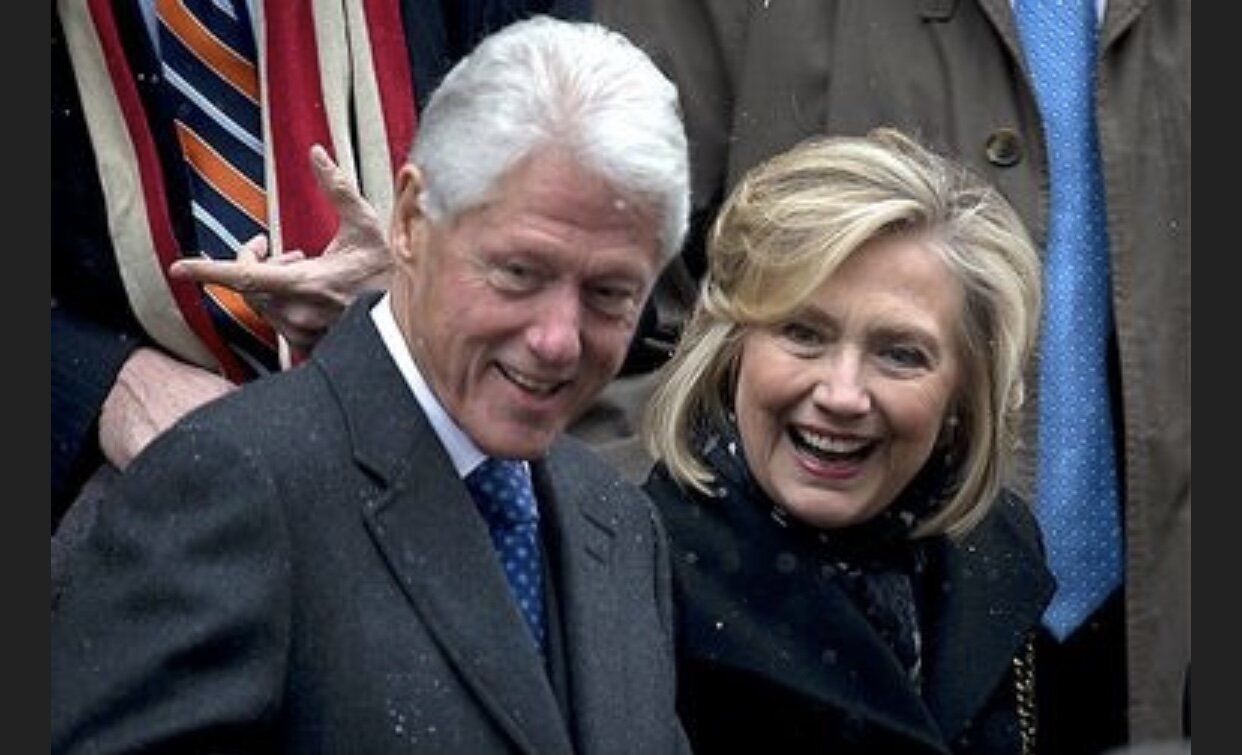The patterns are worth noting.
Vocal opposition continued to mount, as President Obama came under increasing pressure from environmentalists. During an October 26 speech, Obama was heckled about the pipeline. "I know your deep concern about [Keystone XL]," he said. “We will address it." In a series of interviews with local media outlets through the Midwest where the pipeline was supposed to run, he was pressed on the issue.
After officials in Nebraska demanded that the pipeline be rerouted to avoid sensitive environmental areas, President Obama decided to delay approval of the project. In late February 2012 Bill finally issued his statement of support for the project at (of all places) a Department of Energy conference for clean technology start-ups.
With a group of bureaucrats and green-energy investors looking on, Bill told the crowd in Maryland that America should "embrace" the pipeline. Later the same afternoon, Hillary was at the House of Representatives Foreign Affairs Committee hearing, discussing the pipeline.
Naturally, she was asked about her husband's remarks. "He's a very smart man," she responded, causing a smattering of chuckles in the crowd. For Canadians, this was another hopeful sign. As the Canadian press put it, "Bill Clinton's comments will almost certainly cause a stir given his wife has already been accused of a pro-pipeline bias by the sea of American environmentalists who oppose Keystone XL.
Obama's edict that the pipeline issue not be settled until after the 2012 elections effectively sealed its fate, at least as it related to Hillary's ability to get it approved. By January 2013 she was gone from Foggy Bottom.
Since she left office, Hillary has used the fact that because she was involved in the process, she can't talk about her views on the Keystone Pipeline. As she told one crowd, "I've said before in Canada as I've traveled around your country avoiding answering questions about the Keystone pipeline because I really can't, having been part of the process."
So her involvement prevents her from talking about Keystone, but it didn't prevent her husband from making millions from its largest shareholder. As Charles Calomiris, a professor of financial institutions at the Columbia University Graduate School of Business, explains, the speeches were not really about speeches. What they really wanted was to buy Hillary's goodwill by paying Bill. “I'm not sure it would matter if those speeches had taken place in Clinton's bathtub," he said. "What matters is that they paid him."
While much of the media attention to Clinton's speaking has focused on his fees from Wall Street and pharmaceutical companies, it has been the outsized payments from overseas that have really brought in the money.
In 2011 Bill Clinton made $13.3 million in speaking fees for giving fifty-four speeches. But of those speeches paying $250,000 or more, nearly 40 percent, or $5.1 million of those fees, came from just eleven speeches given outside the United States.
Overall, these mega-paying speeches for over $250,000 generated nearly $40 million in income for the Clintons from 2001 to 2013. In short, Bill Clinton's best years-with much higher than average fees being consistently paid by foreign entities-occurred while his wife was at the pinnacle of her power as secretary of state, a perch with enormous influence over issues that directly affected foreign governments.
The link is here.
A few examples make the point. Beginning in 2009, the Swedish telecom giant Ericsson came under US pressure for selling telecom equipment to oppressive governments, some of which used those technologies to monitor and control their own people.
In late 2010 the SEC sent a letter to Ericsson about sales to countries that were considered state sponsors of terrorism by Hillary's State Department. The regimes included Sudan and Syria, where Ericsson sold and maintained telephone- switching equipment, and Iran, where it was selling "commercial grade systems to public network operators for mobile communications."
Ericsson’s Börje Ekholm
Hillary was a well-known hawk on Iran and used economic tools against regimes that were considered sponsors of terrorism. According to US diplomatic cables, State Department officials were "regularly and increasingly" raising these transactions involving Ericsson with the Swedish foreign minister.
In April 2011 Ericsson was named in a State Department report for supplying telecom equipment for the oppressive regime in Belarus. Separately, on Capitol Hill pres-sure was mounting and a bill would later be introduced in December 2011 in the House of Representatives to “stop the sale of surveillance technologies to repressive regimes."
In June 2011 the State Department started drawing up a list of which goods and services might be covered under expanded sanctions on Iran and other state sponsors of terrorism.





